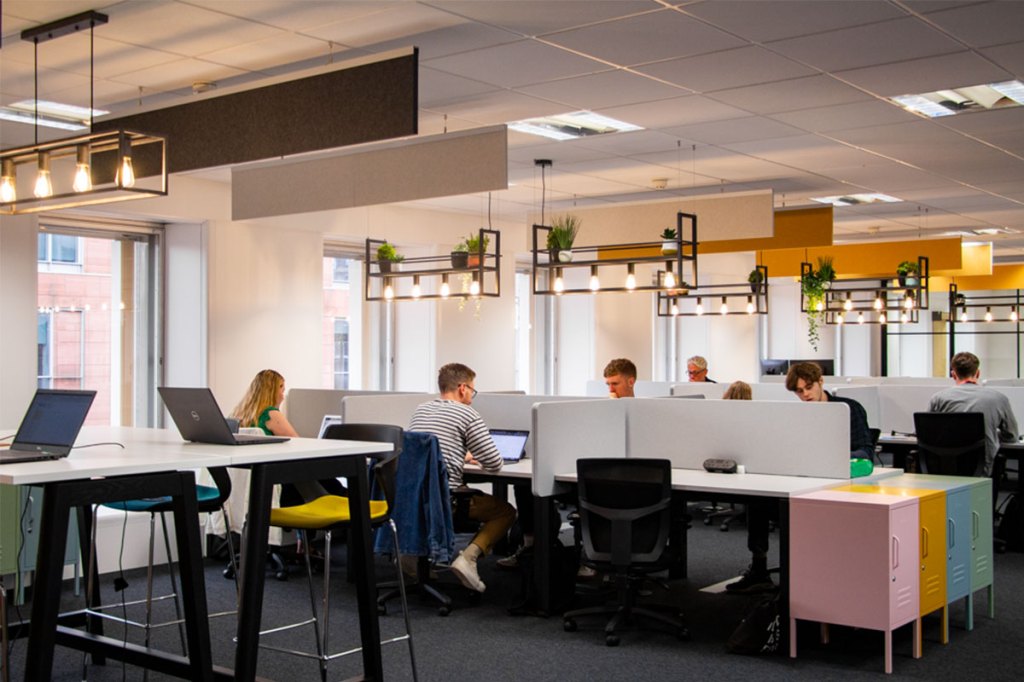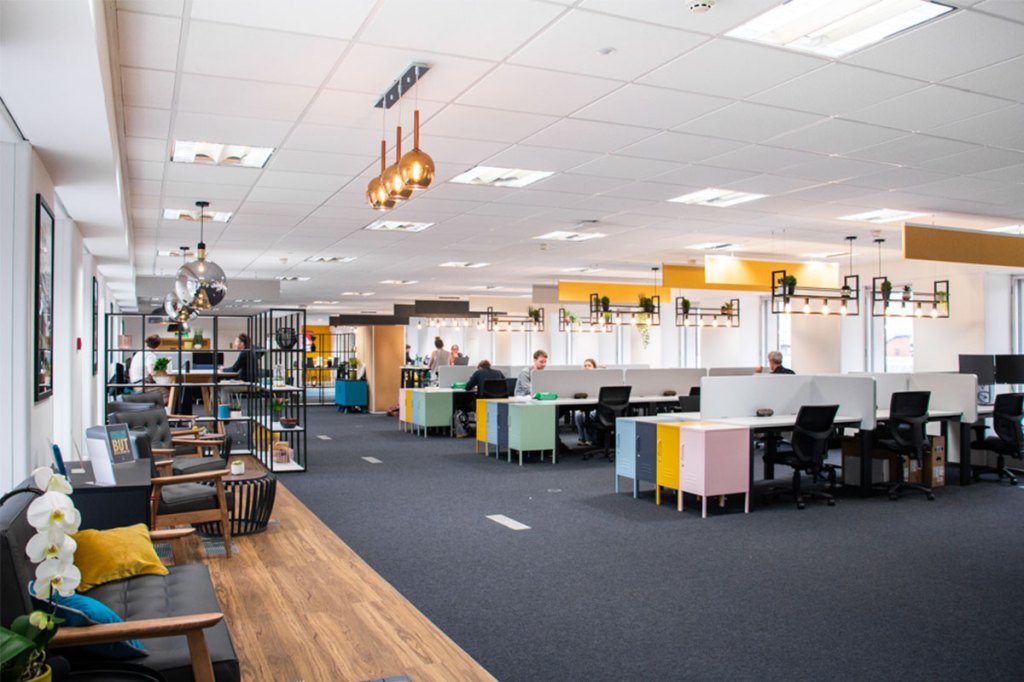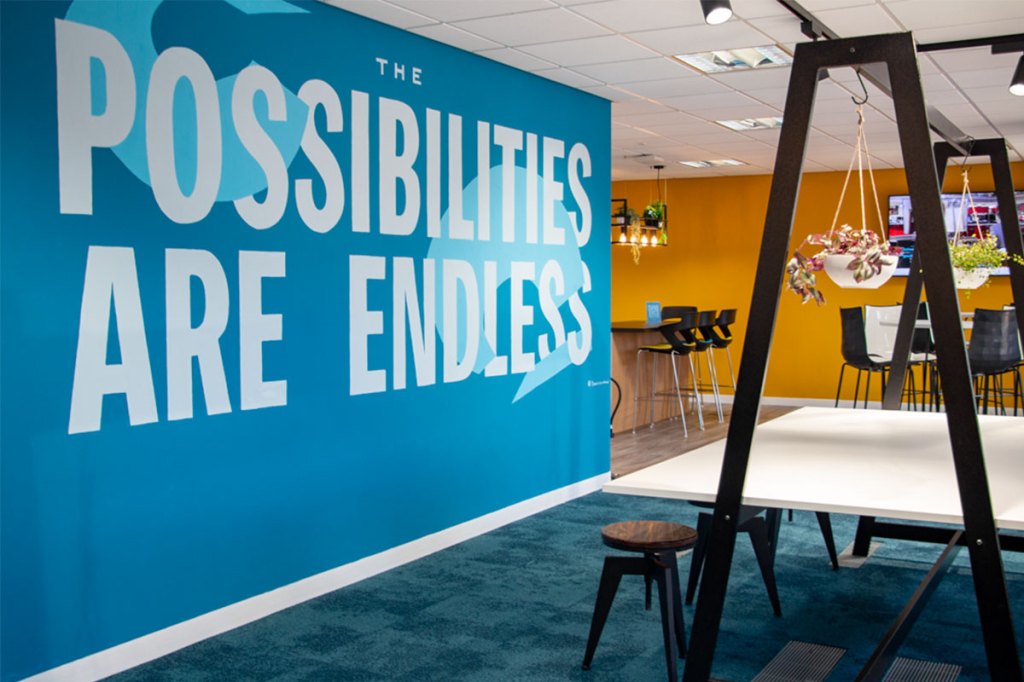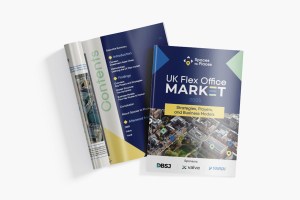Driving Operational Efficiency in Flex Environments
Operating a flexible workspace differs from managing a traditional office. Key challenges include IT infrastructure, Wi-Fi connectivity and hardware. A booking and reporting system is crucial for revenue and capacity compliance. Creating a wireless, touchless, automated environment enhances operational efficiency and member satisfaction.
Moreover, technology saves staff time, allowing them to focus on client-facing activities. Key decisions include choosing the right operating model and determining offerings and amenities. A connected workspace attracts members, increases retention and helps you scale.
In this blog, we will explore how you can enhance operational efficiency in your flexible workspace with a connected flex management solution.

Wireless Environment & IT Infrastructure
As traditional landline phone conversations are being replaced with Microsoft Teams and Zoom, your connectivity is becoming more important than ever. In 2022, Microsoft Teams and Zoom experienced tremendous growth, with Zoom seeing 213,000 enterprise customers and Microsoft reaching 300 million users. Thus, Wi-Fi connectivity is crucial for not only secure door access control and tracking occupancy but also for virtual meetings and increasing revenue from meeting room bookings.
Secondly, the growth of the Internet of Things (IoT) enables improved efficiency and cost reduction through connected systems for heating, cooling, security, lighting and data analytics. Coworking software providers utilise artificial intelligence (AI) and IoT to track leads, enhance budgeting, forecasting and improve member comfort inside the office. It is therefore essential to engage with a software provider that offers a single source of truth to simplify support and avoid supplier conflicts in case of IT issues.
“If something goes wrong from an IT or hardware perspective, you don’t want to be engaging with a variety of suppliers who will then play the blame game.”
Paul Orrock, regional manager for Yardi

Booking desks or meeting spaces should also be streamlined through the same platform and have a connection to the member portal or mobile app. As Jonny Rosenblatt, co-founder of Spacemade explains – “Booking hot desks and meeting rooms, utilising our conference facilities or simply unlocking the office door with your phone – all these innovations enhance the customer experience.”
Your Wi-Fi connectivity plays a significant role in infrastructure and overall efficiency because wireless technology requires less equipment in your IT closet. Instead of having 12-14 switches in a communications room, you may be down to three, giving you less equipment to maintain and fewer pieces that can fail – which is usually caused by landline users and devices that need to be plugged into ethernet ports.
The Effects of Different Operating Models
When considering joint ventures, it’s crucial to understand the other party’s expectations, particularly regarding hardware delivery and their tech and operational knowledge. The partnership should be the right fit to ensure seamless operational components.
From an acquisition point of view, operational efficiency depends on what or who is being acquired. Tech-related contracts and potential break clauses need careful consideration. A good example is, if someone wanted to acquire a Yardi flexible workspace client, they would need to take on our contract as well. That can certainly affect negotiations, especially if the buyer is not previously involved in the industry and would greatly lean on the tools and support that the software provider entails. The acquiring company also need to assess the technology in the workspace(s) and potential refresh needs, so to help them make the right decision on whether they need to replace a cabled environment.

“The use of automated technology allows our clients to get on with what they do best – running their business – and us to do what we do best – support them.”
Janthea Griffin, operations director for 2-Work
From a DIY perspective, replicating the experience delivered by software providers is challenging. Experience is vital for operational efficiency in flexible workspaces. Be aware of the importance of experience in flexible workspace, because making a workspace operationally efficient without practice can be a challenge. Choosing to go at a business venture alone may have upfront cost savings but it can lead to insufficient leads, low member retention and operational challenges further down the line. Even larger commercial operators can be challenged by the differences between traditional space and flexible workspace.
Delivering a consistent experience across locations is crucial for member satisfaction and operational efficiency. Offering roaming capabilities with the same Wi-Fi credentials across locations and ensuring each flex space delivers the same quality connection will eliminate the need for reception support. The same concept applies to conference rooms and desk bookings, where if the process is the same across your locations, members will feel more confident, thus improving retention rates.
Booking & Support
Bookings are the biggest source of income for a flexible workspace operator – this includes meeting rooms, hot desks and any other space that can be reserved and monetised.
Since the inception of coworking, operators have been seeking the most efficient way to manage bookings and it’s truly a two-way street. Having interactive systems, which provide real-time visibility, is vital during capacity restrictions. Offering self-service booking options through portals or mobile apps benefits both members and staff.

“From a reporting standpoint, I would want to be focusing on customer management, lead management, billing, payments, GL, vacancies and contract expirations,” Orrock said. But you will also want to focus on bandwidth management and which customers are using the most bandwidth. This will help to improve your revenue, but also benefit the heavy bandwidth user and increase the available bandwidth for other members. Reporting is also important from a door access control perspective. You can easily track who is in and out of the space and when your busiest times are.
Furthermore, CRM is a big part of operational efficiency – how are you capturing leads and bringing them into your workflow? How are you assigning those leads internally? How are you ensuring that leads are being followed up, up-to-date and closing at a good rate to bring return on your investment (ROI)? A CRM platform streamlines many of your tedious day-to-day activities and removes or reduces spreadsheets and time-consuming sales processes.
Ultimately financial reporting comes down to what information is most important for you to know. No two operations are the same. “There are some standard reports out there, but don’t be afraid to ask your software provider to customise reports for you,” Orrock added.
“The technology we implement across our building operations, sales, marketing and accounting platforms is key to storing and analysing data to remain operationally efficient.”
Jonny Rosenblatt, co-founder for Spacemade
Improve Productivity in Coworking with Yardi Kube
Members want a simple and easy experience and with Yardi Kube, you and your members can benefit from a cloud-based, all-in-one solution designed for flex space management.
The Yardi Kube Suite provides one platform, including a member app, for everything from member management, meeting room bookings and access control to accounting, security, maintenance and procurement. It helps simplify daily operations for coworking locations and flexible workspaces.
Follow Yardi Kube on LinkedIn for the latest news, customer stories and blog posts.




